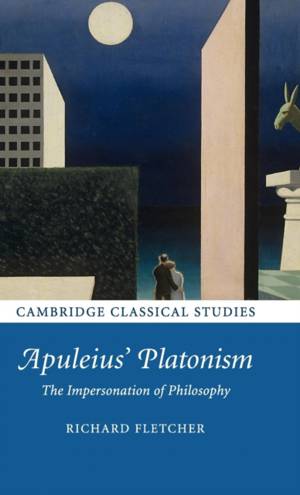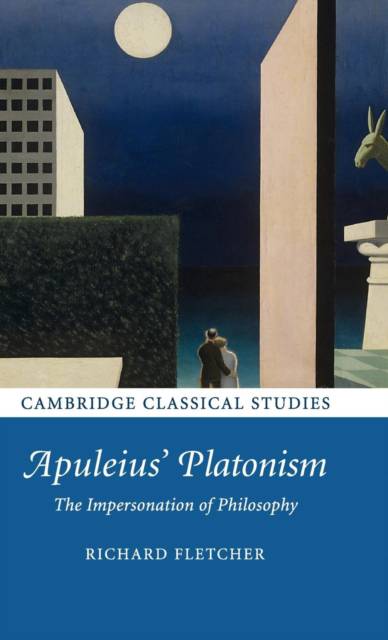
Bedankt voor het vertrouwen het afgelopen jaar! Om jou te bedanken bieden we GRATIS verzending (in België) aan op alles gedurende de hele maand januari.
- Afhalen na 1 uur in een winkel met voorraad
- In januari gratis thuislevering in België
- Ruim aanbod met 7 miljoen producten
Bedankt voor het vertrouwen het afgelopen jaar! Om jou te bedanken bieden we GRATIS verzending (in België) aan op alles gedurende de hele maand januari.
- Afhalen na 1 uur in een winkel met voorraad
- In januari gratis thuislevering in België
- Ruim aanbod met 7 miljoen producten
Zoeken
€ 172,95
+ 345 punten
Uitvoering
Omschrijving
Apuleius of Madauros, writing in the latter half of the second century CE in Roman North Africa, is best known to us today for his Latin fiction, the Metamorphoses aka The Golden Ass, about a man who turned into a donkey and back again. However, he was also a Platonic philosopher, who, even though many of his writings are lost, wrote a range of rhetorical and philosophical works which survive to this day. This book examines these works to reveal how Apuleius' Platonism is a result of his 'impersonation of philosophy', that is, a rhetorically powerful methodological tool that allows him to 'speak' on behalf of Plato and his philosophy. This book is the first exploration of the full scope of his idiosyncratic brand of Platonism across his multifarious literary corpus and is a major contribution to the study of the dynamic between literature and philosophy in antiquity and beyond.
Specificaties
Betrokkenen
- Auteur(s):
- Uitgeverij:
Inhoud
- Aantal bladzijden:
- 332
- Taal:
- Engels
- Reeks:
Eigenschappen
- Productcode (EAN):
- 9781107025479
- Verschijningsdatum:
- 17/07/2014
- Uitvoering:
- Hardcover
- Formaat:
- Genaaid
- Afmetingen:
- 142 mm x 218 mm
- Gewicht:
- 521 g

Alleen bij Standaard Boekhandel
+ 345 punten op je klantenkaart van Standaard Boekhandel
Beoordelingen
We publiceren alleen reviews die voldoen aan de voorwaarden voor reviews. Bekijk onze voorwaarden voor reviews.









